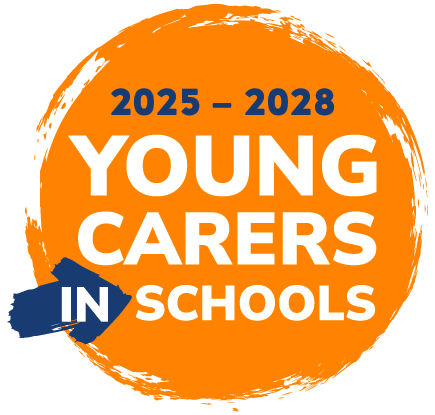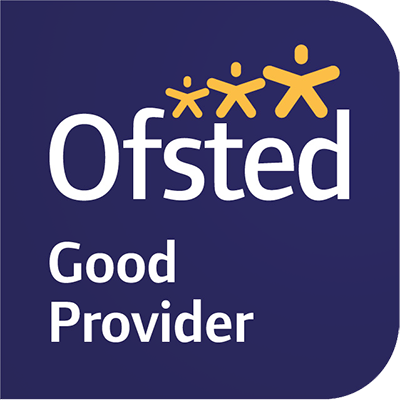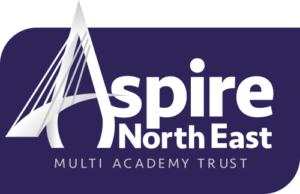Child Development Curriculum Overview
Knowledge Organisers
- Studying Child Development offers students the opportunity to explore a wide variety of topics that underpin the skills and qualities needed for a multitude of future careers within the child care sector.
- Allow students to acquire the skills, knowledge and interdependence required to work in this industry and provide the best possible care for people under their supervision, whether this be a nursery nurse, primary teacher, speech and language therapist, midwife or social worker.
- Studying Child Development teaches our students about providing physical, intellectual, emotional and social support to help children aged 0-5 years live their lives through establishing milestones.
- In this subject students will be academically challenged through the broadness of the curriculum and the wide range of real life scenarios that they will face which prepares students for their life beyond school.
- The course is tailored to build resilience and empathy skills by analysing real life situations.
- Not only does our course in Child Development make our students academically equipped through developing literacy but also focuses on their wellbeing through preparing them emotionally and psychologically by building their confidence, self-esteem and beliefs in their own abilities.
- Resilience (Aiming High Staying Positive Learning from Mistakes)
- Collaboration (Teamwork Leadership Communication)
- Creativity (Originality, Problem Solving, Independent Study)
Key Stage 4 Curriculum
Our Key Stage 4 Curriculum:
Year 10
Unit R058: This is an internal assessment that is completed internally but moderated externally and is assessed by a set assignment which is released in the June before pupils start the course. In this unit pupils will learn how to create a safe environment for children from birth to five years in childcare settings. They will need to complete independent research and choose equipment that is suitable and safe for use and will learn about children’s nutrition and dietary needs which are in accordance with the yearly assignment.
Topics include:
Creating a safe environment in a childcare setting
Choosing suitable equipment for a childcare setting
Nutritional needs of children from birth to five years.Unit R059: This is an internal assessment that is completed internally but moderated externally and is assessed by a set assignment which is released in the June before pupils start the course. In this unit pupils need to understand the physical, intellectual and social developmental norms for children from one to five years and apply this to the set assignment. Pupils will also gain knowledge on different play activities and how to create plans and providing different play activities to support children in their development from 0-5 years old and apply it to the set assignment.
Topics include:
- Physical, intellectual and social developmental norms from one to five years
- Stages and types of play and how play benefits development
- Observe the development of a child aged one to five years
- Plan and evaluate play activities for a child aged one to five years for a chosen area of development.
Year 11
Unit R057: Health and well-being for child development.
This is assessed by an external written exam. In this unit pupils will learn about the importance of pre-conception health and reproduction, antenatal care and preparation for birth. They will also learn about postnatal care and the conditions in which a child can thrive and links to previous topics from the coursework elements.Topics include:
- Pre-conception health and reproduction
- Antenatal care and preparation for birth
- Postnatal checks, postnatal care and the conditions for development
- Childhood illnesses and a child safe environment
At Key Stage 4 students in follow OCR Cambridge technical in Child development,
Download the full policy at the link above for a full break down of learning for each Term.
Aim
Here at Sandhill View Academy, we aim to securely equip all of our students for life beyond school as successful, confident, responsible and respectful citizens. We believe that education provides the key to social mobility and our curriculum is designed to build strong foundations in the knowledge, understanding and skills which lead to academic and personal success. We want our students to enjoy the challenges that learning offers. Our aims are underpinned by a culture of high aspirations. Through developing positive relationships, we work towards every individual having a strong belief in their own abilities so that they work hard, build resilience and achieve their very best.Intent
The curriculum includes formal teaching through subject areas, internal and external assessments. We regularly review content to ensure we continue to meet our curriculum aims. The Child Development curriculum is planned to enable all students to develop knowledge and skills in the following areas:Sequence and Structure
Our curriculum is Key Stage 4 (years 10 - 11) Child Development is an optional subject that pupils are able to opt for at the end of years 9.
Skills Builder
We are also explicitly embedding transferable ‘Skills Builder’ skills such as problem solving, aiming high and teamwork to prepare our students for higher education and employability skills for the future. This year in PE we will focus on LEADERSHIP including self development, team development, strategic thinking and innovation. Through this we aim to create a climate of Supporting, encouraging and developing others to achieve a shared goal. We also aim to develop PROBLEM SOLVING which focuses on how to solve problems, recognising that while part of Problem Solving is technical know-how and experience, there are also transferable tools that individuals can develop and use. Finally STAYING POSITIVE in which students will develop to manage their emotions effectively and being able to remain motivated as well as motivating others, even when facing setbacks
How does our Curriculum cater for students with SEND?
Sandhill View is an inclusive academy where every child is valued and respected. We are committed to the inclusion, progress and independence of all our students, including those with SEN. We work to support our students to make progress in their learning, their emotional and social development and their independence. We actively work to support the learning and needs of all members of our community.
A child or young person has SEN if they have a learning difficulty or disability which calls for special educational provision to be made that is additional to or different from that made generally for other children or young people of the same age. (CoP 2015, p16)
Teachers are responsible for the progress of ALL students in their class and high-quality teaching is carefully planned; this is the first step in supporting students who may have SEND. All students are challenged to do their very best and all students at the Academy are expected to make at least good progress.
Specific approaches which are used within the curriculum areas include:
- 1:1 support with practical tasks e.g. LSA within lessons to allow students to access controlled assessment and exam content
- Resources adapted to accommodate a range of SEND needs
- Seating plans to allow for peer/teacher support
- A range of learning roles used to embed understanding e.g. practical participant, role play taking the role of health care practitioners
- Differentiated and feedback tasks outlined clearly on the board or in teaching resources and linked to assessment criteria at KS4.
- Group work and discussion tasks to develop confidence in leadership and ownership of learning
- Work is always uploaded onto teams in order for both students and parents to work outside of the lesson
How does our curriculum cater for disadvantaged students and those from minority groups?
As a school serving an area with high levels of deprivation, we work tirelessly to raise the attainment for all students and to close any gaps that exist due to social contexts. The deliberate allocation of funding and resources has ensured that attainment gaps are closing in our drive to ensure that all pupils are equally successful when they leave the Academy. More specifically within the teaching of Child Development we;
- Offer visits into work placements within year 10 in the child development sector including links with Little Angel’s nursery on site and local feeder primary schools.
- Targeted support for under-performing students completed on a 6 weekly cycling following data capture.
- Intervention available throughout the week – Tuesday and Thursday lunch and after school.
- Due to accessing funding for disadvantaged students we ensure all these students are equipped with a pack to promote resilience, pride and independence in their work.
- Our results have shown a limited gap in attainment for disadvantaged students in comparison to those that are not.
How do we make sure that our curriculum is implemented effectively?
- Staff have regular access to professional development/training to ensure that curriculum requirements are met.
- Curriculum resources are selected carefully and reviewed regularly.
- The subject leader’s monitoring is validated by senior leaders.
- Staff have regular access to professional development/training to ensure that curriculum requirements are met. Staff also work in [partnership to share good practice within the trust as well as networking in the local area.
- Effective assessment informs staff about areas in which interventions are required. These interventions are delivered during curriculum time to enhance pupils’ capacity to access the full curriculum.
- Curriculum resources are selected carefully and reviewed regularly.
- Assessments are designed thoughtfully to assess student progress and also to shape future learning.
- Assessments are checked for reliability within departments and across the Trust.
How do we make sure our curriculum is having the desired impact?
- Examination results analysis and evaluation, reported to the senior leaders and the local governing body to ensure challenge
- Termly assessments-analysis and evaluation meetings
- Lesson observations
- Learning walks
- Book scrutiny
- Regular feedback from Teaching Staff during department meetings
- Regular feedback from Middle Leaders during curriculum meetings
- Pupil surveys
- Parental feedback
- External reviews and evaluations





